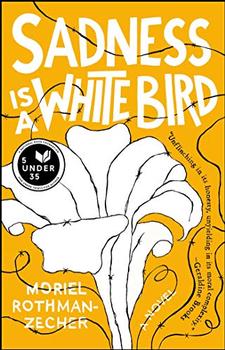Summary | Excerpt | Reviews | Beyond the book | Read-Alikes | Genres & Themes | Author Bio

A Gaza Doctor's Journey on the Road to Peace and Human Dignity
by Izzeldin AbuelaishI Shall Not Hate is without doubt a book with a powerful message. Dr. Izzeldin Abuelaish's thesis is clear and runs through every chapter of the book. Violence is futile, he writes. It is a waste of time, lives, and resources, and has been proven only to beget more violence. It does not work. He emphasizes the need for those in conflict to talk to, listen to, and respect each other, and it is to these themes that the author returns again and again. While his arguments are aimed squarely at the Israelis and Palestinians, their underlying truth is universal.
In addition to pleading for peace, I Shall Not Hate also recounts Abuelaish's remarkable life as a Palestinian refugee. He was born in the Jabalia refugee camp seven years after his father fled his ancestral village in what is now southern Israel in 1947 during what Palestinians refer to as the Nakba (the "Catastrophe" - see the sidebar to It's Easier to Reach Heaven... for more on this topic). While not directly threatened, the family believed they would be safer in the refugee camp until the fighting ceased, after which they would return to their homes; but the exile became permanent and Abuelaish's life-long status as Palestinian refugee colored every aspect of his childhood. His family was …everything the word refugee stands for: disenfranchised, dismissed, marginalized, and suffering. Until he was ten, his family of eleven lived in one room that measured ten feet by ten feet. There was no electricity, no running water; there were no toilets in the house. It was dirty. There was no privacy. We ate our meals from a single plate we shared." The first two-thirds of the book relays the author's journey from abject poverty to his rise as a successful, well-respected specialist in reproductive medicine - a story that is fascinating, revelatory and inspiring in its own right.
As a physician, Abuelaish found that he collaborated well with Israeli doctors - he didn't care that they were Israeli and they didn't care that he was Palestinian. Furthermore, his Israeli patients were simply grateful to receive help and were also unconcerned about his ethnicity. Over time he developed the knowledge that communication promotes understanding, and only through understanding can disparate peoples come to reconciliation. He worked to promote this point of view for decades, teaching his children the need for tolerance and acceptance and becoming an internationally-known advocate for Israeli-Palestinian peace.
The book's apex comes as the author relates the events surrounding his wife's death from cancer in November 2008 and the subsequent tragedy involving his family on January 16, 2009. These chapters are absolutely heartbreaking; the inclusion of photos showing the four beautiful, vibrant girls who died as a result of an Israeli attack leaves a lasting impression of sorrow at their loss, and drives home the utter waste and pointlessness of war. It is truly amazing that a parent can recover from such a loss and continue to advocate for peace.
That's not to say Abuelaish isn't angry; a subtle undercurrent of rage pervades much of his narrative. He rails against the injustices he sees around him, discrimination and inequality that have only intensified over the years. Dozens of amputees wait for treatments. Why? Does importing artificial limbs pose a security risk?... That the Gaza hospitals are run-down and can't be repaired because of an embargo is preposterous. This is a medical issue; it's not about recruiting soldiers and making rockets." He makes it clear, however, that anger is different than hate, and while he is angry with the situation in which the Palestinians find themselves, he has made a choice to not hate those who have contributed to this state of affairs -- and he blames Hamas as well as the Israelis for the conflict. This underlying tension prevents the book from coming across as too simplistic or naïve; it gives it heart and keeps it from becoming too dry.
Although I Shall Not Hate can be a bit repetitive at times, its fundamental point is an important one. Anyone interested in developing a better understanding of the Israeli-Palestine conflict would benefit from reading this short book.
![]() This review was originally published in The BookBrowse Review in February 2011, and has been updated for the
February 2012 edition.
Click here to go to this issue.
This review was originally published in The BookBrowse Review in February 2011, and has been updated for the
February 2012 edition.
Click here to go to this issue.

If you liked I Shall Not Hate, try these:

Looking at Women Looking at War
by Victoria Amelina
Published 2025
Destined to be a classic, a poet's powerful look at the courage of resistance.

by Moriel Rothman-Zecher
Published 2019
In this lyrical and searing debut novel written by a rising literary star and MacDowell Fellow, a young man is preparing to serve in the Israeli army while also trying to reconcile his close relationship to two Palestinian siblings with his deeply ingrained loyalties to family and country.
Your guide toexceptional books
BookBrowse seeks out and recommends the best in contemporary fiction and nonfiction—books that not only engage and entertain but also deepen our understanding of ourselves and the world around us.